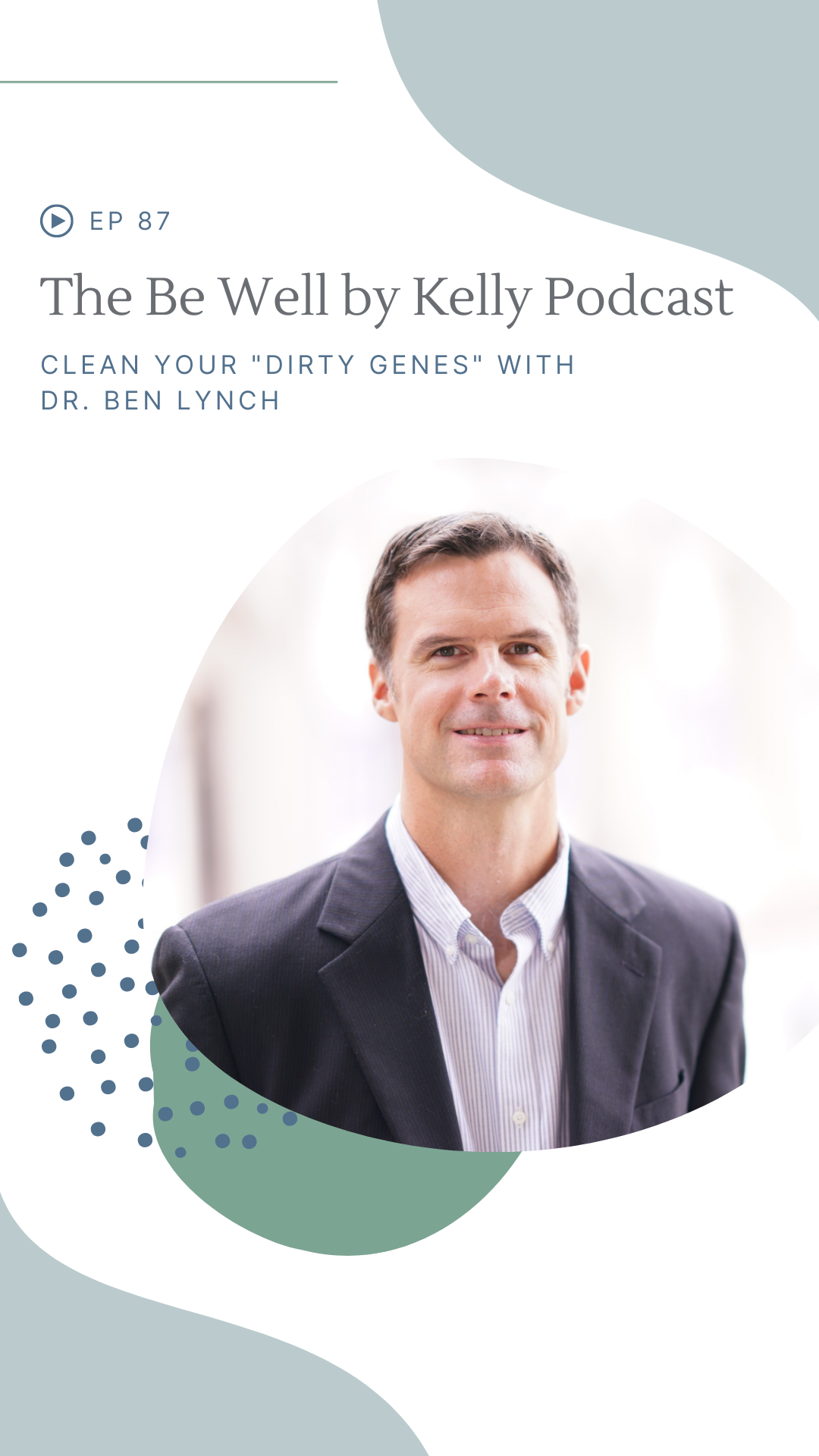
LISTEN ON: APPLE PODCASTS | SPOTIFY
Epigenetics expert and author of “Dirty Genes,” Dr. Ben Lynch, shows us how to understand our genetic blueprint to become the healthiest version of ourselves.
I came across Ben's groundbreaking work a couple of years ago after suffering from a miscarriage. By analyzing my genetic disposition, lifestyle, and diet triggers, I overcame my genetic shortcomings to birth my wonderful son without any complications.
Today we discuss how genetic analysis can help beat pregnancy symptoms (from morning sickness to nose bleeds), and the different ways you can heal your "dirty gene" pathways to function at your very best.
Show Notes:
Dr. Ben Lynch grew up on a horse ranch and was sick from a young age from some of the chemicals sprayed on the farm
Disturbed by the failure rate of certain protocols instructed by conventional medicine, Dr. Lynch began investigating genetic testing in order to enhance outcomes
Diet and lifestyle should be optimized first, followed by genetic testing to uncover any lingering issues that should be targeted
StrateGene is a genetic test that provides users with a report to help unlock their personal blueprint and shows how genes interact with each other
StrateGene can reveal some areas of susceptibility in personal genetic variations
Epigenetics are the daily choices that impact the way that your genes are functioning
Kelly's StrateGene showed some genetic susceptibilities with MTHFR making it hard to convert folic acid in prenatals into folate. Kelly has "slow transport" folate genes and should prioritize folate in food and taking a methylated folate supplement.
Dr. Lynch never promotes supplements first, he wants people to seek improvements through lifestyle and diet first, and then address "dirty genes" (genetic susceptibilities) through supplementation
Histidine comes from protein and can lead to histamine increase if protein is overconsumed. There are several lifestyle habits that should be looked at if histamines are an issue: caffeine intake, sleep, protein intake, exercise intensity
Histamine symptoms are nosebleeds, headaches, eczema, sweating, irritability, migraines
NOS3 helps with blood vessel widening, critical for delivering oxygen to the blood and the baby when you're pregnant, it's an important gene to be aware of
Resources:
Website: drbenlynch.com
Website: seekinghealth.com
Podcast: “Dirty Genes”
Read: “Dirty Genes: A Breakthrough Program to Treat the Root Cause of Illness and Optimize Your Health.”
Instagram: @drbenlynch
Thank you to our show sponsor, Kettle & Fire! Go to kettleandfire.com/bewell and use the code BEWELL for 20% off your order.
Connect with Kelly:
Instagram: @bewellbykelly
Facebook: www.facebook.com/bewellbykelly
Be Well By Kelly is a production of Crate Media






